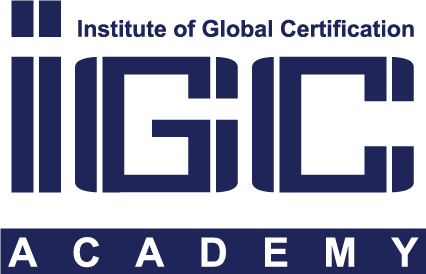ISO 26000 Guidance on Social Responsibility
Page Information

Content
1. ISO 26000 Guidance on Social Responsibility
ISO 26000
ISO 26000 provides guidance on the principles of social responsibility, practices of social responsibility, core subjects and issues of social responsibility, and integrating social responsibility throughout an organization. ISO 26000 is designed to apply to all types of organizations, regardless of size, and emphasizes performance and improvement in social responsibility.
However, ISO 26000 is not a management system standard, but a guidance on social responsibility, so it is not appropriate to use it for certification
 < ISO 26000 >
< ISO 26000 >
ISO 26000 - 7 Principles
ISO 26000 explains the principles of social responsibility that organizations must follow when implementing social responsibility. Relevant information is as follows.
- ①Accountability : The organization should be able to answer for the impact of its decisions and activities on society, the economy and the environment.
- ②Transparency : The organization should transparently disclose its policies, decisions and activities that impact on society, the economy and the environment.
- ③Ethical behaviour : The organization should behave ethically with concern for people, animals and the environment.
- ④Respect for stakeholder interests : The organization should respect, consider and respond to the interests of stakeholders.
- ⑤Respect for the rule of law : The organization should be aware of all legal obligations and accept that respect for the rule of law is mandatory.
- ⑥Respect for international norms of behaviour : The organization should respect international norms of behaviour while adhering to the principle of respect for the rule of law.
- ⑦Respect for human rights : The organization should respect the rights set out in the International Bill of Human Rights and recognize the importance and universality of human rights.
 < ISO 26000 - 7 Principles >
< ISO 26000 - 7 Principles >
ISO 26000 – 2 Practices
For the organization to address the core subjects of social responsibility, it should consider the practices of social responsibility, recognizing social responsibility and engaging stakeholders. Relevant information is as follows.
- ①Recognizing social responsibility : The organization should understand the relationship between the organization, its stakeholders and society.
- ②Engaging stakeholders : The organization should identify stakeholders who have an interest in its own decisions and activities.
 < ISO 26000 – 2 Practices >
< ISO 26000 – 2 Practices >
ISO 26000 – 7 Core subjects
ISO 26000 introduces organizational governance, human rights, labour practices, environment, fair operating practices, consumer issues, and community involvement and development as 7 core subjects of social responsibility.
- ①Organizational governance : Organizational governance is the system by which an organization makes and implements decisions in pursuit of its objectives. Thus, organizational governance is the most important factor that holds organization accountable for the impact of its decisions and activities and integrates social responsibility throughout the organization and its relationships.
- ②Human rights : Human rights refer to the basic rights that all human beings are entitled to. Although human rights are mostly concerned with relationships between states and individuals, non-state organizations also have a responsibility to respect human rights as they can affect the human rights of individuals.
- ③Labour practices : The organization's labour practices include all policies and practices related to work performed within, by, and on behalf of an organization, including subcontracted work. Meaningful and productive work is a key component of human development, and socially responsible labour practices are essential to social justice, stability, and peace.
- ④Environment : Wherever the organization is located, its decisions and activities affect its environment. These impacts include the organization's use of resources, where the organization's activities take place, and the generation of pollution and waste. The organization will need to adopt an integrated approach to reduce their environmental impact, considering the direct and indirect economic, social, health and environmental impacts of its decisions and activities.
- ⑤Fair operating practices : Fair operating practices relate to an organization's ethical conduct in its dealings with other organizations. This includes organizations and their relationships with government agencies, as well as their partners, suppliers, contractors, customers, and competitors. The organization needs to care about how they use their relationships with other organizations to promote positive outcomes in fair operating practices.
- ⑥Consumer issues : The organization that provides products and services to consumers is responsible for those consumers and customers. Organizational responsibilities include providing accurate information, using marketing information, and contracting processes that are fair, transparent, and helpful, and where appropriate, designing products and services tailored to the needs of marginalized and vulnerable groups.
- ⑦Community involvement and development : Today, it is widely accepted that organizations relate to the communities in which they operate. Community engagement, whether individual or group, helps strengthen civil society, and organizations that engage in ways that respect communities and community institutions reflect and reinforce democratic and civic values.
 < ISO 26000 – 7 Core subjects >
< ISO 26000 – 7 Core subjects >
ISO 26000 - Relationship with ESG
ESG is a word derived from the initials of Environmental, Social, and Governance, which means that sustainable development is possible considering transparent management such as eco-friendly, social responsibility management, and governance improvement in corporate activities. As corporate environmental and social responsibility is emphasized, ESG is becoming an important standard in corporate value evaluation. Accordingly, ISO 26000 is a guideline that satisfies the three elements of ESG, and companies can establish a system for environment, labor practices, community development and social contribution, etc., using ISO 26000 as the main standard for social responsibility.
- PrevManagement System Certification 22.02.15
- NextMaintaining and improving competence required of auditor 22.01.25
List Of Comments
NO COMMENTS HAVE BEEN REGISTERED.




